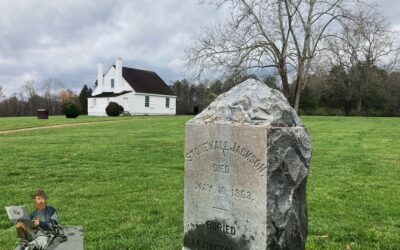Field music was the backbone of the armies during the Civil War. Field music was made up of fifers, drummers, and buglers and their job was to use their instruments to communicate orders to the troops. Their job was to regulate a soldier’s life both in camp and on the battlefield. The music was comprised of duty calls, tactical signals on the battlefield, and ceremonial tunes that were used for dress parades or just entertainment.
The following is an example of a duty call. This one is called Three Camps or Reveille and was played first thing in the morning.
Civil War Musicians
Field musicians came in all shapes and sizes. The Army Regulations allowed boys as young as twelve to enlist as musicians regardless if they could read music or even play an instrument. US Army War Department General Orders No. 48 issued on July 31, 1861 designated 2 field musicians per company were required. This meant a drummer and either a fifer or bugler. According to estimates, the total number of musicians who served during the war was approximately 54,000. Musicians quickly learned all of the required songs either in camp or at a music school such as the one on Governor’s Island in New York.
Most of the time musicians were not playing and during this time they took on roles during the battle such as stretcher-bearers, gravediggers, and surgeon assistants. On the rare occasion when a brass band on the battlefield played during the fighting, their job was to play in such a way as to boost morale.
Check out my friends from Camp Chase Fifes and Drums playing Frog in the Well and Old Zip Coon:
Field Music Instruments
As stated above, field musicians played either drum, fife, or bugle. The bugle is one of the simplest brass instruments, normally having no valves or other pitch-altering devices. All of the notes are controlled by the player’s embouchure which is how they hold their lips and mouth when playing. A fife is a transverse flute with either six or eight holes that were made of rosewood or another type of hardwood and came in the key of B-flat. Drums were usually made from maple, ash, or holly and had four to six animal gut snares that were tuned by a rope tension system According to Union army guidelines, military drums were to be painted with the arms of the United States on a field that was blue for the infantry and red for the artillery. Company and regiment letters and numbers were often placed beneath the arms or in a scroll.
Famous Civil War Musicians
All told, there were three drummer boys who received the Congressional Medal of Honor. The youngest was eleven-year-old drummer Willie Johnston of the 3rd Vermont Infantry who received it in 1863 for bravery during the Seven Days Battles. Johnny Clem, the “drummer boy of Chickamauga,” ran away from home at age nine and became a drummer boy with the 22nd Michigan Infantry. He retired as a major general in 1916.
Taps
In 1862, after the Seven Days Battle, General Dan Butterfield was attempting to come up with a bugle tune to signal lights out for the troops. In the end, he took a French bugle call and rearranged it into his own work of just 24 notes. Butterfield gave the notes to his bugler, Oliver W. Norton of the 83rd Pennsylvania Volunteers. Norton became the first person to play the arrangement and it quickly spread throughout both Union and Confederate camps to signal that the day was done.
General Butterfield then suggested using the new call at the end of a military burial, to replace the firing of three volleys. It was used for the first time at a military funeral during the Peninsular Campaign in Virginia. The volleys stayed and the tune was added to military funerals. The tune became known as Butterfield’s Lullaby but today is known as Taps.



0 Comments